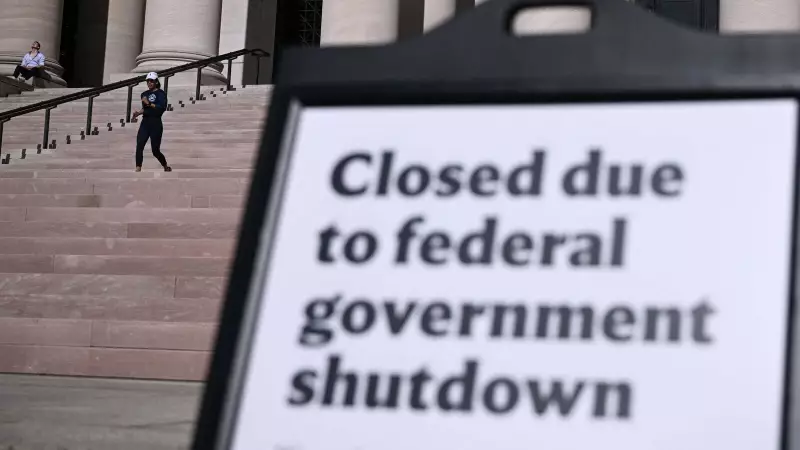
The United States stands on the brink of a catastrophic government shutdown as political tensions reach boiling point in Washington. The Senate's 11th attempt to pass crucial funding legislation has collapsed spectacularly, leaving federal operations hanging by a thread.
Political Impasse Reaches Critical Level
For the eleventh consecutive time, Senate lawmakers failed to reach consensus on government funding, exposing the deep ideological divide between Republican and Democratic factions. The voting session, which stretched late into the night, ended in familiar deadlock as neither side showed willingness to compromise.
'No Kings' Movement Gains Momentum
Adding fuel to the political fire, the burgeoning 'No Kings' protest movement has intensified its demonstrations across Capitol Hill. The grassroots organization, which emerged in response to former President Donald Trump's continued influence over Republican politics, has mobilized thousands of activists demanding legislative independence from what they term "monarchical tendencies" in modern American politics.
Federal Services Face Immediate Threat
The consequences of this political failure are far-reaching and immediate:
- Essential government services could cease operations within days
- Federal employees face potential furloughs and unpaid leave
- National parks and museums may be forced to close their gates
- Passport and visa processing could experience significant delays
- Military personnel might work without guaranteed pay
Behind the Scenes: What's Really Blocking Progress
Insiders reveal that the stalemate centers on several contentious issues that have divided lawmakers for months. The shadow of presidential politics looms large over the negotiations, with both parties positioning themselves for the upcoming election cycle rather than focusing on immediate governance needs.
Political analysts warn that this breakdown represents more than typical partisan gridlock. "We're witnessing a fundamental crisis in American governance," noted Dr. Sarah Chen, political science professor at Georgetown University. "The inability to perform basic functions like funding the government suggests deeper systemic issues that transcend normal political disagreements."
What Happens Next?
With time running out before funding completely expires, emergency sessions are being scheduled around the clock. However, there's little optimism among seasoned Capitol Hill observers that a breakthrough is imminent. The political calculus appears to have shifted from practical governance to ideological warfare, leaving millions of Americans and global markets watching nervously.
The coming days will determine whether American political institutions can still function in an era of extreme polarization, or if the world's most powerful democracy is becoming ungovernable.





